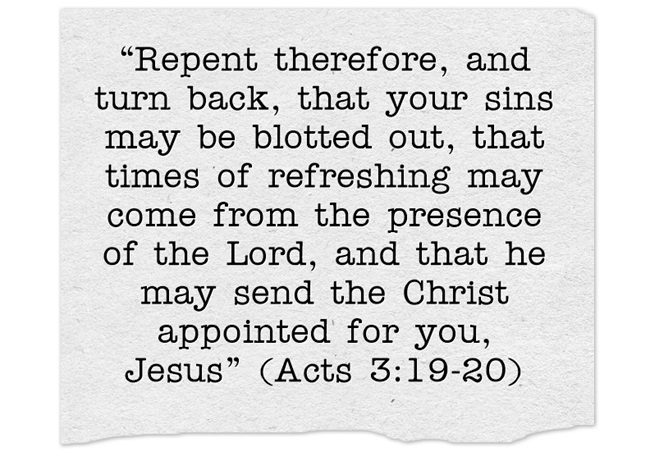Repentance, fundamentally a turning away from sin and a sincere change of heart and behavior, is a core theme showcased across several books of the Bible. This essay will explore what the Bible tells us about repentance.
Firstly, the Old Testament provides numerous instances emphasizing repentance. In the book of Genesis, the story of Adam and Eve highlights the consequences of disobeying God, showcasing the need for repentance and reconciliation. The prophet Jonah similarly reveals the power of repentance, as the people of Nineveh, through their genuine remorse and morality that repentance is crucial in seeking forgiveness and restoring a relationship transformation, were spared divine punishment. These narratives conv with God.
Moving forward, the New Testament expands upon the understanding of repentance. The teachings of Jesus Christ, as recorded in the Gospels, explicitly emphasize the significance of repentance. In the book of Mark, Jesus proclaims, “Repent and believe in the gospel” (Mark 1:15 ESV), highlighting the inseparable link between repentance and faith. This demonstrates that repentance is not merely regret or remorse, but an active choice to redirect one’s life towards God.
The apostle Paul, in his letters, further elucidates the nature of repentance. In his letter to the Corinthians, Paul mentions that godly sorrow leads to repentance, while worldly sorrow brings only despair (2 Corinthians 7:10). This distinction underscores the transformative power and genuine nature of repentance. It is not a mere show of guilt, but a deep sorrow that leads to change and renewal.
Moreover, the parables shared by Jesus convey important insights into repentance. The prodigal son’s tale in the book of Luke exemplifies the Father’s forgiveness towards his repentant son, emphasizing God’s willingness to embrace the returning sinner. This parable teaches that repentance is not only about forgiveness from sin but also about experiencing a reconciled relationship with the Father.
Another notable parable is the story of the Pharisee and the tax collector, found in the book of Luke. While the Pharisee boasts of his righteousness before God, the tax collector humbly pleads for mercy and demonstrates genuine repentance. Jesus concludes, “I tell you, this man went down to his house justified, rather than the other” (Luke 18:14 ESV), affirming the importance of true repentance and humility.
Furthermore, the book of Acts portrays repentance as an essential aspect of embracing the Christian faith. Peter’s powerful sermon on the day of Pentecost urges the listeners to “repent and be baptized” (Acts 2:38 ESV). This emphasizes that repentance is a necessary step towards salvation and receiving the Holy Spirit, central to the Christian experience.
Throughout the Bible, repentance is depicted as a transformative process towards righteousness. The Prophets, such as Isaiah and Jeremiah, continually call for repentance, urging people to turn away from their sinful ways and seek God’s mercy. These prophetic messages remind us that repentance is not a one-time event, but an ongoing lifestyle of surrendering to God’s will and seeking personal growth.
In conclusion, the Bible provides a rich tapestry of teachings on the subject of repentance. From the Old Testament stories of Adam and Eve and Jonah to Jesus’ teachings in the Gospels, repentance is depicted as an act of turning away from sin, seeking forgiveness, and embracing a transformed life. The writings of Paul and the parables shared by Jesus further underscore the genuine nature and positive outcomes of repentance. Repentance is presented not only as a means of seeking forgiveness but also as a vital step towards embracing a reconciled relationship with God. As students of the Bible, we are called to embrace the lessons on repentance conveyed within its pages and strive for a life characterized by continual renewal and growth in the Christian faith.
